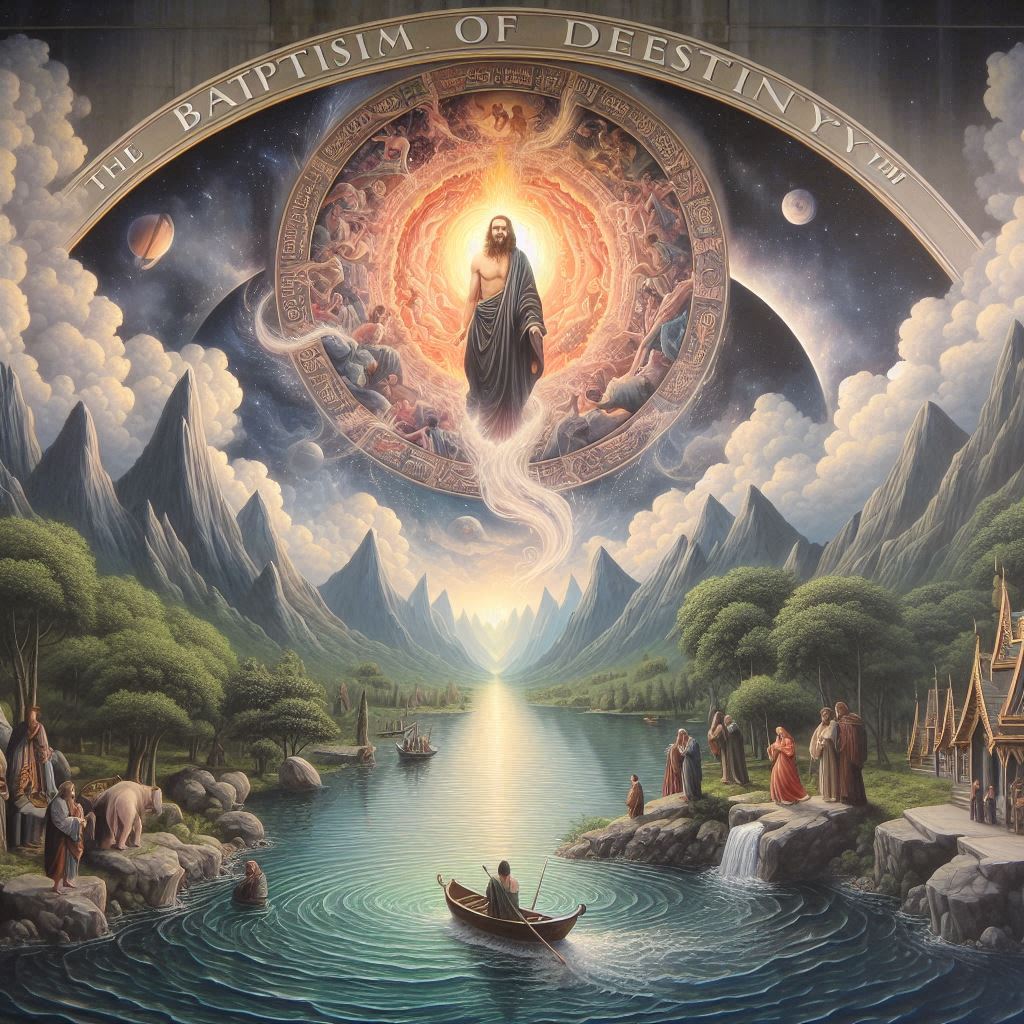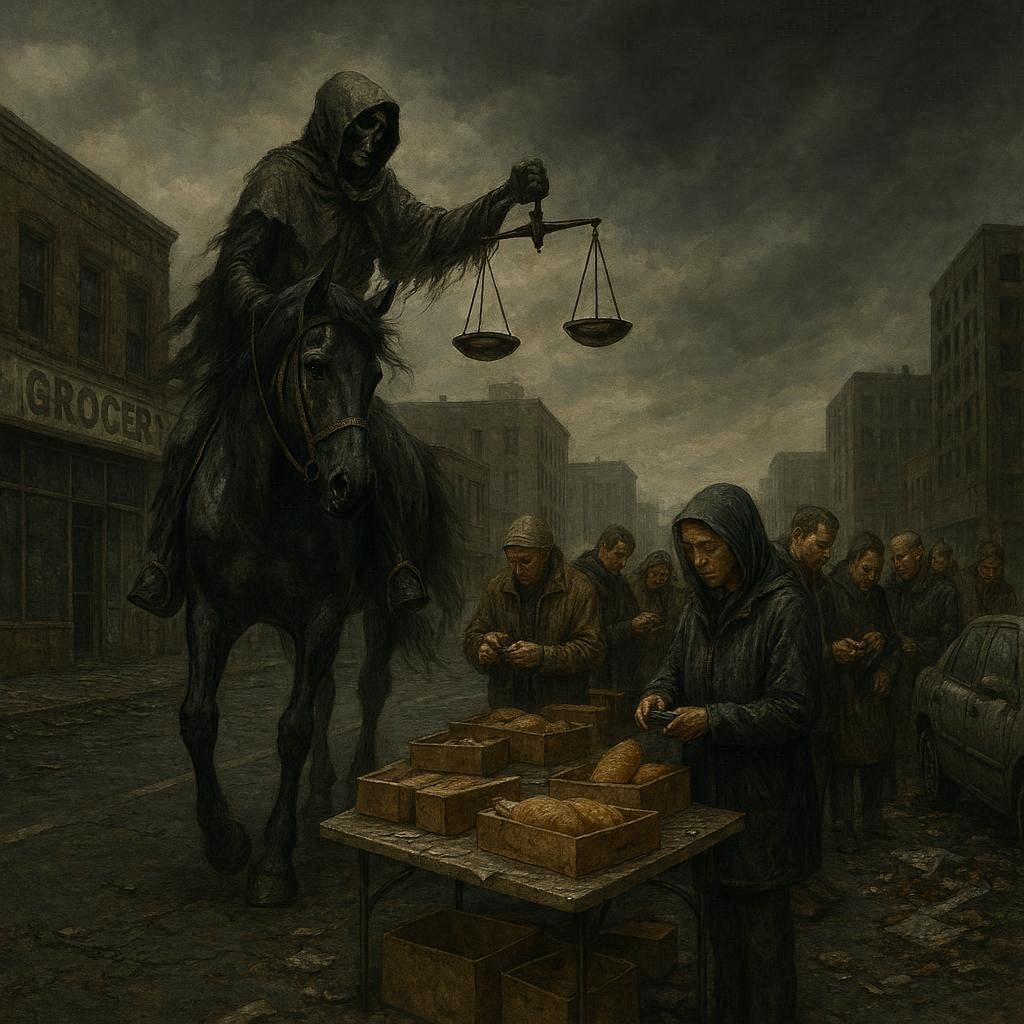Matthew 3.
“Welcome, believer—faith is your shield.” Strong not in self, but in the Lord. Have a courageous heart—fear has no dominion here. Being a servant of Christ—your labor is not in vain. There is no unemployment here, we need more workers. Called, chosen, and faithful. Press on toward the prize in the Return of Jesus to Receive us Forever!
In the ancient land of Judea, a man emerged from the wilderness, clad in coarse camel’s hair and a leather belt around his waist. His name was John, son of Zechariah and Elizabeth, and he was destined for a divine purpose. From his earliest days, the hand of God was upon him, for he was to be the herald of a great event—the coming of the Messiah.
John’s journey began in the desolate wilderness, where he lived a life of solitude and reflection. From a young age, he felt a calling, a divine whisper guiding him to prepare the way for the Savior. He grew up with a deep understanding of the scriptures and a fervent devotion to God. As the years passed, John’s reputation spread throughout the region. People from all walks of life journeyed to the wilderness to hear his powerful preaching. His words were like a fire, burning away the impurities of the heart, and many were moved to repentance.
John’s attire mirrored his ascetic lifestyle, a stark contrast to the opulence of the cities. He subsisted on locusts and wild honey, finding sustenance in the simplicity of God’s creation. His message was clear—repent and be baptized, for the Kingdom of Heaven was at hand. One day, as the sun painted the desert sky with hues of orange and pink, a figure approached the Jordan River where John was baptizing. The crowd hushed in awe as a man, humble in appearance yet radiating an otherworldly presence, stood before John.
The man was Jesus, the one whose arrival John had been proclaiming. Though they were cousins, separated by mere months in age, there was an unspoken recognition of the divine purpose that bound them together. John hesitated, feeling the weight of the moment. “I need to be baptized by you, and do you come to me?” he questioned, recognizing the holiness of the one before him. Jesus replied, “Let it be so now; for thus it is fitting for us to fulfill all righteousness.”
And so, John consented, immersing Jesus in the waters of the Jordan. As Jesus emerged, the heavens opened, and the Spirit of God descended like a dove, resting upon him. A voice echoed from above, proclaiming, “This is my beloved Son, in whom I am well pleased.”
The encounter between John and Jesus marked a pivotal moment in their intertwined destinies. From that day forward, John’s mission took on new urgency. He continued to preach, but now with even greater conviction, knowing that the fulfillment of his prophecies was at hand. As John traversed the land, he encountered both friend and foe. The Pharisees and Sadducees, threatened by his influence, sought to undermine him. In the midst of danger, John stood firm, a beacon of truth in a world clouded by hypocrisy.
One day, King Herod Antipas, ruler of Galilee, caught wind of John’s teachings and grew uneasy. Herod had married Herodias, his brother’s wife, a union condemned by Jewish law. John, unyielding in his commitment to righteousness, publicly denounced Herod’s marriage, declaring it unlawful. Herodias, filled with rage, sought to silence the voice that condemned her actions. Seizing an opportune moment, she orchestrated a plot to have John arrested. Herod, torn between his fear of the people and his allegiance to Herodias, reluctantly ordered John’s imprisonment.
As John languished in the dark confines of the prison, doubt crept into his mind. He had dedicated his life to preparing the way for the Messiah, and now he found himself confined, his purpose seemingly thwarted. In his moments of solitude, John’s disciples visited him, bringing reports of Jesus’ ministry. They spoke of miracles, healings, and the multitudes that flocked to hear his teachings. Yet, even in the face of uncertainty, John clung to his unwavering faith, trusting that God’s plan would unfold in due time.
Meanwhile, Jesus continued his ministry, gaining followers and facing increasing opposition. The shadow of John’s imprisonment loomed over him, a reminder of the cost of speaking truth to power. One day, word reached Jesus of John’s plight. Moved by compassion, he withdrew to a desolate place, seeking solace and communion with his Father. The crowds, however, pursued him, and as he saw them, he was filled with compassion. He healed their sick and miraculously fed thousands with a few loaves and fishes.
Amidst the tumult, Jesus took a moment to address the crowd. “What did you go out into the wilderness to see? A reed shaken by the wind?” he asked, alluding to the fickle nature of public opinion. “But what did you go out to see? A man clothed in soft garments? Indeed, those who wear soft clothing are in kings’ houses.” He then turned the crowd’s attention to John, the one who had prepared the way for him. “Assuredly, I say to you, among those born of women there has not risen one greater than John the Baptist; but he who is least in the kingdom of heaven is greater than he.”
As Jesus spoke these words, he acknowledged John’s unparalleled role in God’s plan. Despite his imprisonment, John’s significance remained undiminished. The crowd listened in awe, recognizing the divine connection between the Baptist and the Messiah. In the dark confines of his prison cell, John received word of Jesus’ words. Though doubts had crept into his mind, the affirmation from his cousin renewed his spirit. He continued to bear witness to the truth, even as the days in captivity wore on.
The plot against John, however, took a sinister turn. The celebration of Herod’s birthday provided an opportunity for Herodias’s daughter, Salome, to dance before the king. Herod, pleased by her performance, made a rash promise, swearing to give her whatever she desired, even up to half his kingdom. Prompted by her mother’s vendetta, Salome requested the head of John the Baptist on a platter. Herod, trapped by his own words and the pressures of the court, reluctantly ordered John’s execution.
In the grim confines of the prison, John faced his final moments with unwavering resolve. He had fulfilled his divine calling, preparing the way for the Messiah. As the executioner’s blade fell, John’s earthly journey came to an end. The news of John’s death reached Jesus, who withdrew to a solitary place to mourn. The loss of his cousin, the forerunner who had paved the way for his ministry, weighed heavily on his heart. Yet, even in grief, Jesus continued to heal the sick and proclaim the Kingdom of God.
The story of John the Baptist, from the wilderness to the river, from the heights of divine revelation to the depths of a prison cell, is a tale of unwavering faith and sacrifice. His journey intertwined with that of Jesus, creating a narrative of divine purpose and fulfillment. In the face of danger and drama, John stood as a beacon of truth, preparing the hearts of many for the arrival of the Savior. And even in death, his legacy endured, for the impact of his life resonated through the ages, a testament to the power of one man’s obedience to a divine calling.
By: Norman G. Roy III
John The Baptist: The Untold Truth Of The Bible Prophet (Biblical Stories Explained):
*Stay blessed to bless others*



